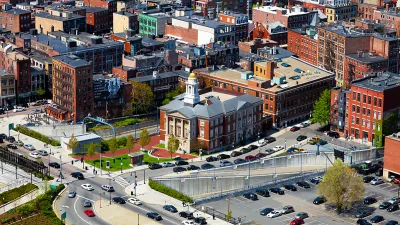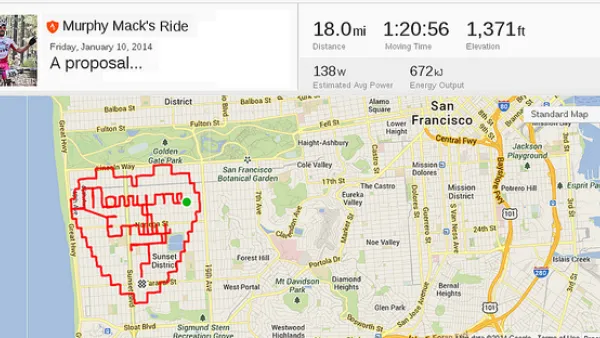Two planning researchers, one a professor at Tufts and another independent, make the case against apps as a panacea for urban problems.

Julian Agyeman and Duncan McLaren write a dissenting take on the trend of cities seeking the latest in "smart city" technology. According to their argument, "our current smart-city techno fetish rides roughshod across the public realm." Moreover, it "encourages the belief that there’s always 'an app for that' — that we can address deep-seated, structural urban problems through business-led technological innovation and somehow sidestep the messiness of inclusive politics."
As evidence to back up those claims, Agyeman and McLaren first cite the example of a partnership between the city of Boston and Waze, the Google-owned navigation app (not to be confused with the city of Boston's partnership with Uber, which has been the subject of recent criticisms). Despite seeming like a great idea, according to Agyre, and McLaren, the partnership with Waze "merely represents a Band Aid slapped over a problem that still requires brave new political thinking and much-needed infrastructure investment." Agyeman and McLaren's response to the problems of congestion would employ congestion pricing and transit investments, rather than relying on the effects of Waze's data-collection system.
FULL STORY: Apps don’t make a city smart

Analysis: Cybertruck Fatality Rate Far Exceeds That of Ford Pinto
The Tesla Cybertruck was recalled seven times last year.

National Parks Layoffs Will Cause Communities to Lose Billions
Thousands of essential park workers were laid off this week, just before the busy spring break season.

Retro-silient?: America’s First “Eco-burb,” The Woodlands Turns 50
A master-planned community north of Houston offers lessons on green infrastructure and resilient design, but falls short of its founder’s lofty affordability and walkability goals.

Test News Post 1
This is a summary

Analysis: Cybertruck Fatality Rate Far Exceeds That of Ford Pinto
The Tesla Cybertruck was recalled seven times last year.

Test News Headline 46
Test for the image on the front page.
Urban Design for Planners 1: Software Tools
This six-course series explores essential urban design concepts using open source software and equips planners with the tools they need to participate fully in the urban design process.
Planning for Universal Design
Learn the tools for implementing Universal Design in planning regulations.
EMC Planning Group, Inc.
Planetizen
Planetizen
Mpact (formerly Rail~Volution)
Great Falls Development Authority, Inc.
HUDs Office of Policy Development and Research
NYU Wagner Graduate School of Public Service


























